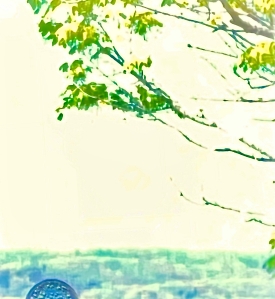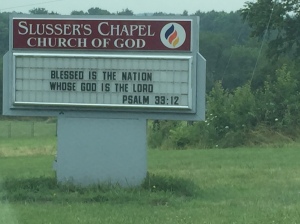Part of my current writing project involves a future with flooding on the eastern seaboard of the United States. I’m no climate scientist, though of course I have observed, as we all have, that extreme weather is rapidly becoming more normal than extreme. So to shore up my fictional world, I’ve been reading the U.N. Climate Report.
There are so many things I love about this massive bureaucratic document. I love that each chapter begins with an overview of what’s going to be covered. I love that it states how much the authors agree about, and have confidence in, their statements. What I love the most: how they’re valiant efforts to be neutral in their vocabulary and syntax reveals the breadth and depth of destruction caused by our systemic objectification and subjugation of the natural world.
For example: “Anthropogenic warming has resulted in shifts of climate zones, primarily as an increase in dry climates and decrease of polar climates (high confidence). Ongoing warming is projected to result in new, hot climates in tropical regions and to shift climate zones poleward in the mid- to high latitudes and upward in regions of higher elevation (high confidence).
These sentences make me twitchy for poetry, which so often functions as the great unmasker of the naked emperor. (And when poets turn to essays, as Ross Gay does in Incitement to Joy, they continue to unmask.) I’m no poet, but I can count syllables and I’ve gone a little nuts playing with the ways some of the UN report’s language could be shaped into semi-found haikus/tangas. This is pure play, and I do not intend disrespect to these forms with my amateur frolicking (in particular, I realize haikus are usually untitled, but titles here were my launchpads…). Thinking in syllables served as a refreshing break from my longer work, allowing me to return to prose with a slightly-more-finely-tuned ear.
1. Technical Summary, page 49
Local trees dampen
amplitude of extreme heat.
Still they welcome us.
2. Climate-related extremes on land:
risks are amplified
I’m thinking this means
trailer parks, shacks, shanty towns,
human well-being,
nevermind ecosystems. Knowledge gap!
See update in two-point-two.
3. Introduction to the chapter structure
optimize across
the lands’ sectors stakeholders
sustain policy
-relevant best management
assess for mitigation

May it be that poetry alights upon your eye and ear whensoever you are in need of it.



